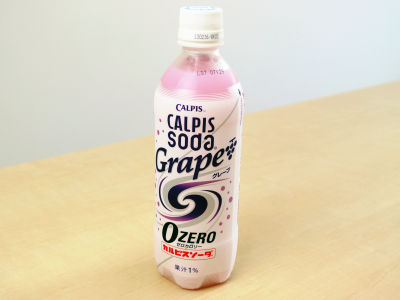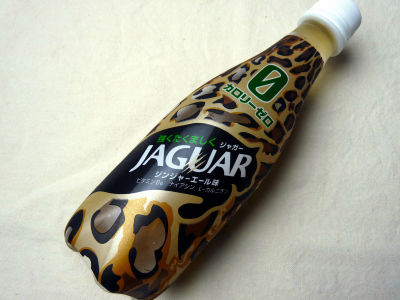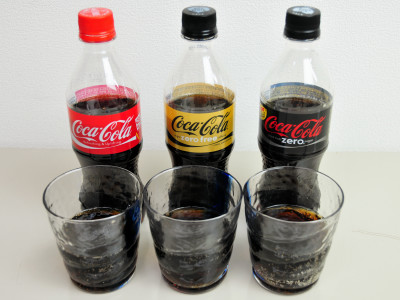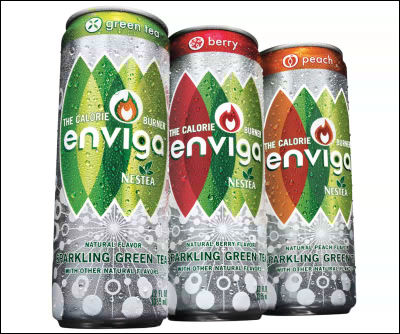What kind of things can scientists do while competing for development seeking the best zero calorie carbonated beverages?

ByVox Efx
Coca-Cola ZeroYaPepsi NEX ZEROAs shown, each beverage maker sells zero calorie diet carbonated beverages at once. These are reducing the calories by not using sugar, instead of using sweetener to reproduce the sweetness, but using the sweetener "unique scent and aftertaste" to delicate natural and delicious There are scientists who continue their efforts day and night to finish it.
Coke, Pepsi Seek Diet Soda's Perfect Sweetener - Bloomberg Business
http://www.bloomberg.com/news/articles/2015-03-19/coke-pepsi-seek-diet-soda-s-perfect-sweetener

In the laboratory in Copenhagen, Denmark, Swiss biotechnology company "Evolva Holding"Food scientists are accumulating their research every day to improve" Cola "which is one of the world's most popular drinks. Why Copenhagen? In 1990, Copenhagen has "a method of separating pure yeast fungus" indispensable for mass production of beerCarlsbergBecause it was discovered in the brewery. Since then, Copenhagen has become the center of innovation on "fermentation", but now it is not only to produce beer using yeast, but also to create "perfect carbonated drink" of "fermentation" Technology is used.
From the research laboratories in Copenhagen, Denmark to Coca-Cola, Pepsi and other beverage makers, "perfect carbonated drinks" seeking for a lot of things are delicious as tasty as Coke, with a natural sweetness, yet It is a zero calorie diet carbonated drink.
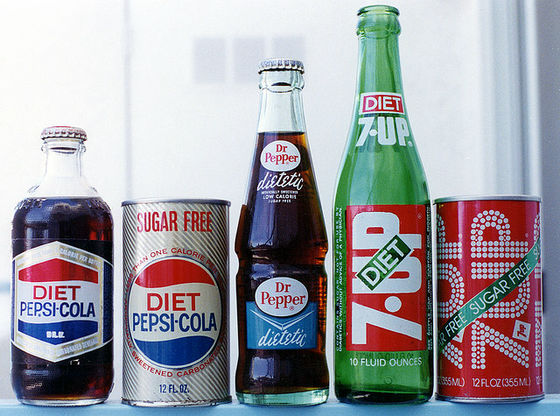
ByRoadside pictures
More than a century since the birth of Coke, this black carbonated drink has grown to become one of the most popular drinks in the world now. From a global point of view, Coke accounts for more than half the sales of carbonated drinks as a whole. The soft drink industry earns 187 billion dollars a year (about 23 trillion yen), but drinks containing too much calories are not desired in advanced countries like the United States and Japan.
Consumption of obesity and health, consumption of carbonated beverages has been falling in the past nine years in the United States. It is a calorie zero drink made by Coca-ColaDiet CokeHas dropped its sales by 7% annually in the United States, which is twice as high as the sales reduction rate of the entire US cola market.
The following graph showsEuromonitor InternationalIt shows the rate of change in sales in the cola market in the United States based on the survey data of. Since 2005, sales have continued to decline, and in 2014 it has declined by about 2.7 billion dollars (about 330 billion yen), a 4% compared to the previous year.

From these circumstances, Coca-Cola, PepsiCo, the three largest carbonated beverage makers in the United States,Dr Pepper Snapple GroupHave begun to tackle new beverage fields other than carbonated beverages such as energy drinks and milk and at the same time we are actively working on state-of-the-art science and technology research and development to protect the cola business . "If you create a perfect sweetener, it will produce enormous profits," said Howard Telford, researcher at Euromonitor International.
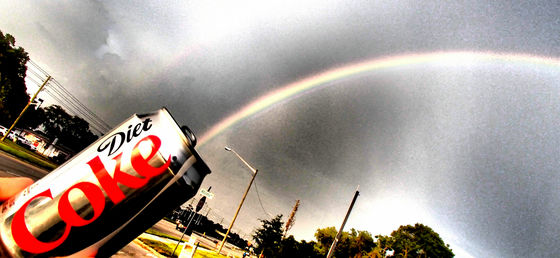
ByGeorge
90% of the ingredients of classical American cola are carbonated water, the next most components are sugar containing a lot of calories orGlucose fructose liquid sugaris. This will contain more than 140 calories in 12 ounces (about 350 ml), so it will be more caloric than Oreo's cookies. However, changing "sweetener" will greatly change "mouthfeel" or "sardine", so carbonated beverage makers need to carefully change ingredients.
In a recent study, it was "favorable among the Guarani tribe of Paraguay"Stevia"The sweetener that can be taken from plants has received attention, which has also been approved by the US Food and Drug Administration (FDA).Future Market InsightsAccording to the survey by Stevia in 2014 sweetener market it has been revealed that it has reached 11.4% of the total.
At least 20 kinds of beverages made by Coca-Cola are used Stevia, which was released in 2015Coca-Cola LifeIt is also used. In addition, it is sold only for the USPepsi TrueStevia is also used, and you can see well that stevia is paying attention in health-conscious drinks.
Stevia microparticles have a slightly bitter aftertaste, but Coca-Cola and Pepsi use each of the colas with both sugar and stevia, so that it is possible to reduce the calories by about one-third of the usual cola While restraining, it seems to be finishing as a delicious drinking mouth like a normal cola.
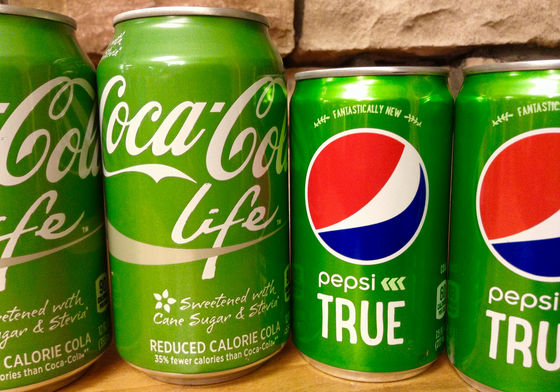
ByMike Mozart
Stevia's fine particles can extract less than 1% of its volume from the leaves and it is necessary to cultivate a huge amount in order to use it in large amounts, which is why expensive cost is required as it requires extensive land It is unavoidable. Therefore, food scientists working at the laboratory in Copenhagen are conducting research to generate the most tasteless microparticles from Stevia genes.
The method is a method of combining stevia microparticles with baker's yeast and adding glucose
↓
glucoseIt adds. This process seems to be able to generate accurate copies of Stevia microparticles, Neil Golds, CEO of Evolva Holding, says proudly that "This is as natural as beer and bread."
In theory, the microparticles continue to infinitely increase in the yeast tank. The goal of Evolva Holding is already a major agricultural business by proving that yeast can produce stevia microparticles of value for moneyCargillAnd has signed a long-term contract as a Coca-Cola sweetener supplier.
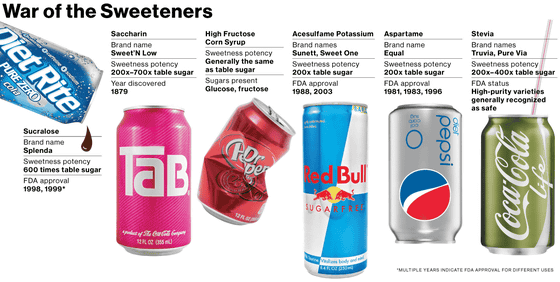
In addition, it is also a Dutch biotechnology companyDSMIs working on the production of sweetener using fermentation, Coca-ColaChromocellIt seems that a biotechnology company like that also has a spit. The goal of these companies is to reduce sugar by 90% or more while keeping the taste like sugar, Chromocell has already mixed sugar and stevia so that the amount of sugar can be reduced by 33% without changing the taste, I succeeded in reducing it. In addition, Senomyx, a partner company of PepsiCo, is working on reducing sugar consumption without compromising taste by mixing sugar and stevia like Chromocell.
Chromocell's CEO Kristian Koffli cites price competition with sugar as a future issue of Stevia, "Consumers" want to drink the same taste with less calories but do not pay any more " I am telling you, "he states the importance of cheaply generating stevia.
Related Posts:
